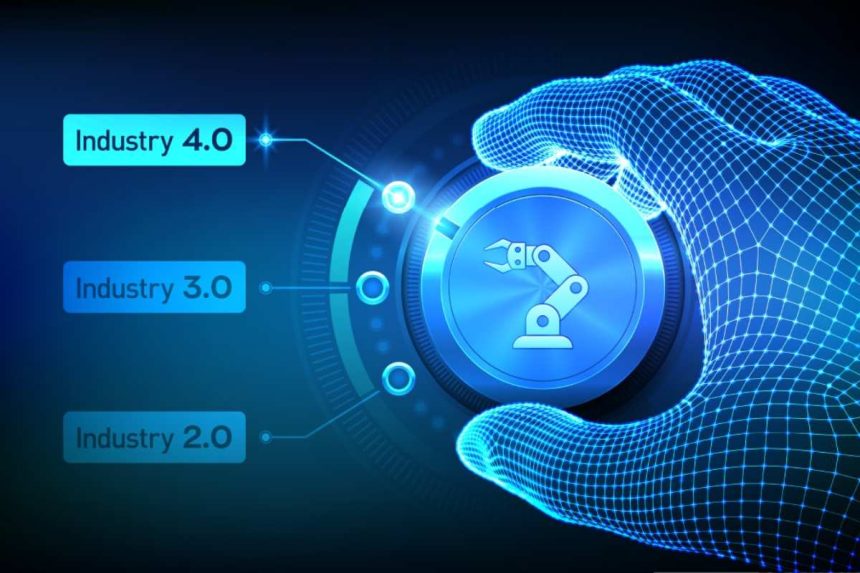Welcome to the dawn of Industry 4.0 – a revolutionary era where the fusion of advanced IT solutions with traditional manufacturing practices is not just an innovation; it’s a necessity. In this ever-evolving industrial landscape, where technology paves the path to success, the adoption of sophisticated IT solutions has become an urgent priority for manufacturing companies. As we delve into this transformative world, our journey will be both informative and persuasive, aiming to unravel how IT solutions are not just enhancing but revolutionizing manufacturing processes. So, let’s embark on this exciting exploration together, understanding why integrating these technologies is not just a step forward but a leap into a future of limitless possibilities in manufacturing.
Understanding Industry 4.0
At the heart of the fourth industrial revolution, commonly known as Industry 4.0, lies the integration of digital technologies into manufacturing. It’s a concept that has moved from buzzword to a critical strategy in the manufacturing sector, signaling a significant shift from traditional practices to smart, connected production lines.
The Shift to Smart Manufacturing
- Digital Transformation: Industry 4.0 marks the transition from mechanical and analog processes to digital and automated ones, driven by technologies like the Internet of Things (IoT), Artificial Intelligence (AI), and big data analytics.
- Interconnectivity and Data Exchange: This era is characterized by a high level of interconnectivity between machines and systems, facilitating seamless data exchange and automation.
Why Embracing Industry 4.0 is Essential
- Staying Competitive: In a rapidly evolving market, staying ahead means adopting the latest technologies. Companies that integrate advanced IT solutions are more likely to lead in innovation and efficiency.
- Enhanced Productivity and Flexibility: Smart manufacturing allows for greater productivity and flexibility in production processes, adapting quickly to market changes and customer demands.
The Role of IT Solutions in Industry 4.0
- Data-Driven Insights: Advanced IT solutions provide manufacturers with invaluable data insights, enabling predictive maintenance, streamlined supply chains, and optimized energy use.
- Customization and Quality Control: With technologies like AI and machine learning, manufacturers can offer higher levels of customization and maintain stringent quality control.
Key Advanced IT Solutions in Manufacturing
The arsenal of Industry 4.0 is rich with advanced IT solutions, each playing a distinct role in elevating manufacturing to new heights. Let’s explore some of these technologies that are critical for future-proofing manufacturing processes.
Enterprise Resource Planning (ERP) Systems
- Integration and Efficiency: ERP systems integrate various facets of a manufacturing business, from inventory management to customer relations, into a single, streamlined system. This integration boosts efficiency and provides better control over operations.
- Informed Decision-Making: By offering real-time data and analytics, ERP systems enable informed decision-making, reducing costs and enhancing productivity.
Internet of Things (IoT) and Smart Sensors
- Real-Time Monitoring: IoT devices and smart sensors provide real-time monitoring of manufacturing equipment, offering insights into machine performance and predictive maintenance.
- Enhanced Connectivity: These technologies foster a connected manufacturing environment, improving process efficiency and facilitating swift responses to operational challenges.
Artificial Intelligence (AI) and Machine Learning (ML)
- Predictive Analytics: AI and ML are at the forefront of predictive analytics in manufacturing, foreseeing equipment failures and optimizing production schedules.
- Quality Assurance: AI-driven quality control systems surpass traditional methods by identifying defects with greater accuracy and consistency.
Robotics and Automation
- Increased Productivity: Automation, especially through robotics, has revolutionized assembly lines, leading to higher productivity and reduced labor costs.
- Precision and Safety: Robotics provide unparalleled precision in tasks and help in performing dangerous or intricate tasks, ensuring safety and quality.
Cybersecurity Solutions
- Protection of Sensitive Data: As manufacturing becomes more digitized, protecting sensitive data and intellectual property is paramount.
- Risk Management: Robust cybersecurity solutions safeguard against threats and vulnerabilities in a highly connected manufacturing environment.
The integration of these advanced IT solutions represents a monumental leap in manufacturing capabilities. They not only optimize current processes but also open doors to new possibilities in production and operational efficiency. The next section will discuss the impact these technologies have on manufacturing efficiency and innovation.
Conclusion
In the fast-paced world of Industry 4.0, embracing advanced IT solutions isn’t just a choice; it’s a necessity for the future of manufacturing. We’ve journeyed through the transformative power of technologies like ERP systems, IoT, AI, and robotics, unveiling their critical role in redefining the manufacturing landscape. For leaders and IT managers in this sector, the message is clear: adapt and innovate or be left behind. The future of manufacturing is smart, connected, and driven by data. By integrating these advanced IT solutions, your company won’t just survive the digital revolution; it will thrive in it, setting new benchmarks in efficiency and innovation. The time to act is now – future-proof your manufacturing processes and gear up for a smarter, more efficient tomorrow.


